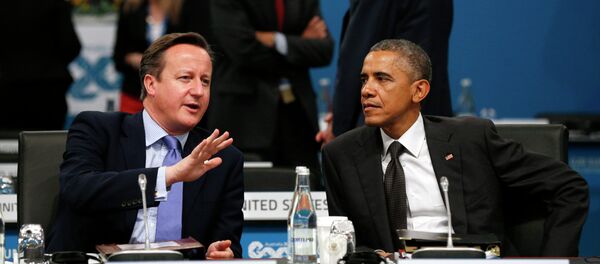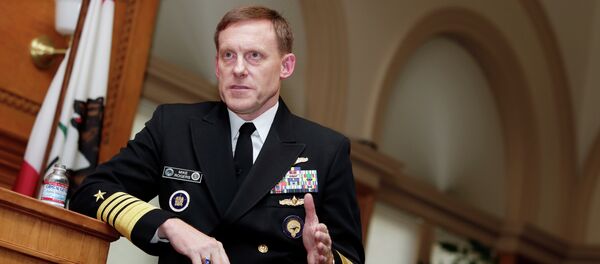In January, President Obama and Prime Minister David Cameron held a highly anticipated meeting. At the top of the agenda was the future of Internet surveillance, and both sides pledged to pressure US-based tech companies into sharing user data voluntarily.
"The prime minister’s objective here is to get the US companies to cooperate with us more, to make sure that our intelligence agencies get the information they need to keep us safe," a British government source told the Guardian prior to the meeting.
To that end, the Obama administration began requesting backdoor encryption access for federal law enforcement agencies. Last week, major tech giants, including Google and Apple, penned a letter to the president urging the White House to reconsider its policies.
"Strong encryption is the cornerstone of the modern information economy’s security," the letter reads.
And now, the United Nations appears to agree. A new report by UN Special Rapporteur David Kaye found that "encryption and anonymity enable individuals to exercise their rights to freedom of opinion and expression in the digital age and, as such, deserve strong protection."
The report points out that anonymity is essential to various classes of people who depend on free thought, such as journalists, artists, and whistleblowers. But that privacy is also important for an individual fostering their own sense of identity.
"The ability to search the web, develop ideas and communicate securely may be the only way in which many can explore basic aspects of identity, such as one’s gender, religion, ethnicity, national origin or sexuality," the report reads.
The report also calls on the US Congress to "prohibit the Government from requiring companies to weaken product security or insert back-door access measures."
The report likely won’t sit well with US law enforcement officials who have sided with the president in his push for government access. On Wednesday, National Security Agency director Mike Rogers told a cyberwarfare conference that he supported encryption, but with some interesting caveats.
"Can we create some mechanism where within this legal framework there’s a means to access information that directly relates to the security of our respective nations, even as at the same time we are mindful we have to protect the rights of our individual citizens?"
This is a sentiment echoed by FBI Director James Comey, who gave a speech last year claiming that government-proof cell-phone encryption could lead to a "very dark place" for law enforcement agencies.
But Kaye’s report insists that "[s]tates should avoid all measures that weaken the security that individuals may enjoy online, such as backdoors, weak encryption standards and key escrows."
He also notes that there is no evidence that "criminal or terrorist use of encryption serves as an insuperable barrier to law enforcement objectives."
Speaking to the Washington Post, Kaye sets it’s important for the United States to take the lead on digital rights issues.
"It’s pretty clear that when well established democracies do things that are inconsistent with human rights law, others around the world who aren’t necessarily in the democratic camp take that as an example of something that’s permitted."






